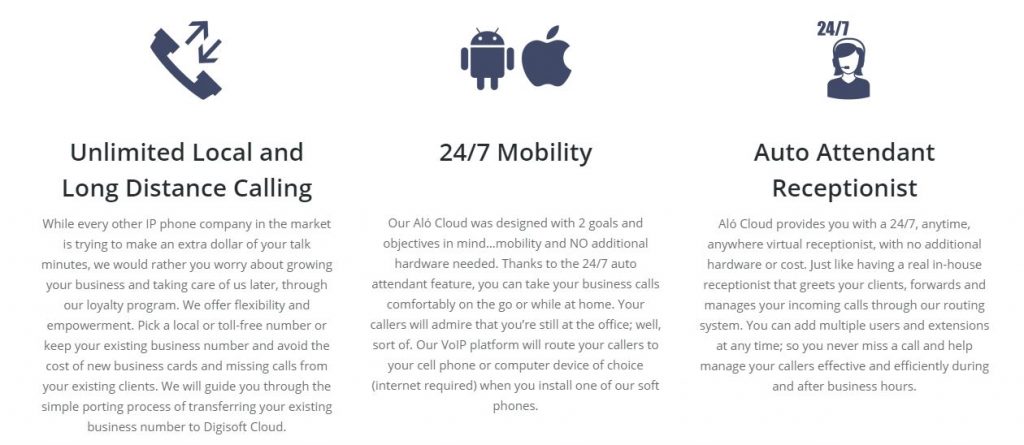How to Improve Business Agility in Pandemic Times

Setbacks are inevitable.
It doesn’t matter your industry, your company size, or the time you’ve been on business.
If you are not prepared to pivot your company to what the market or circumstances demand you could soon become the next blockbuster.
That’s where business agility comes in place.
Today we’re going to dive deep into what’s business agility, the impact it can have on your business, and how to take full advantage of the cloud to help you adapt and scale your organization.
Let’s start from the beginning.
What is Business Agility?
Business agility is the capacity of a business to rapidly adapt to market changes, customers’ demands, and business needs in a cost-effective manner.

Meaning that they have an adequate structure, team culture, and IT infrastructure to accomplish high-level tasks and still be able to make changes without breaking the business, go overhead with budget or lose countless hours in the process.
Let’s take an example to illustrate what we’re talking about.
How does an agile business look like?
So far we understand that an agile business needs to have:
- A flexible infrastructure, both an IT infrastructure and an organizational infrastructure.
- A culture that aligns with the agile philosophy.
- The ability to adapt and lead change in a productive and cost-effective way.
A great example of a company that checks all those boxes is Adobe.

In 2012, Adobe revamped its performance management process, cutting 80,000 hours in management annually.
The team ditched the annual performance report – which was too over-complicated, time-consuming and just ineffective to bring rapid changes – and incorporated regular on-basis performance discussions.
Making it possible for employees and managers to have more communication, gather feedback from the team, and find opportunities within the organization.
This is what they called “check-ins”.
Related content: How Adobe Scrapped Its Performance Review System And Why It Worked
The take away from this story is that when you have a more agile process on the management level, you’re able to understand the needs of your organization at the right time.
Giving you enough freedom to make informed decisions, prevent problems, or even pivot your efforts in the right direction.
Why Does Your Business Need to be Agile in Normal Times?
In today’s disruptive market, is more important than ever to be able to pivot your business depending on the market demand.
We are already seeing the impact disruptive companies have within an industry.
It wasn’t too long when Netflix enter in the “entertainment industry” and changed the whole game.
And what happened to more traditional businesses that didn’t have the ability to adapt to the new playing field?
Well… we do not use Blockbuster anymore, do we?
If that doesn’t paint a well enough picture, here are 4 reasons you need your business and team to be agile:
1- Take advantage of market opportunities
As your business grows, you’ll need to have more employees and, thus, a structure that helps you organize your workloads.
Having a static and easy to follow the chain of command (organizational structure) seems like the last destination of most companies.
Or at least that was the truth before.

Bureaucracy can undercut creativity and makes hard to take advantage of market shifts as feedback and decision making takes longer to get into implementation.
And when a disruptive force gets into the playing field, time is your most valuable asset.
Having a more flexible structure will allow your team to get work done faster, test more frequently, and implement changes when needed.
Following the example above, the Adobe team implemented a big shift in how their product was shipped.
Instead of being a software seller, they pivot their software and became a SaaS company.
Which in return allowed them to get more profitable, invest more into improving their current suite of apps, and build new apps to create an ecosystem for creative organizations of any size.
Related content: Netflix vs Blockbuster – 3 Key Takeaways
2- Get constant feedback to improve internal processes
Processes are important for any business to function right.
Without them, repetitive tasks – no matter at what level – would take way more time than they should.
Also, a process helps you identify possible problems, teach others to do certain jobs, and increase quality.
The problem is that most companies wait way too long – if they even do it – to get feedback from employees.
After all, they’re the ones following those processes.

3- Improve your team’s creativity, performance, and company loyalty
When you develop a culture around agility and freedom, and you integrate this philosophy to your management style, then you’ll notice two things:
- Your team is more effective and productive
- Your team will be more invested with the company

When your team has more flexibility, all the tools, and the flexibility they need to make their work easier, they will do more and faster.
And when they have more decision-making capabilities, they can have and give feedback faster without bureaucratic walls.
They’ll feel like part of the company and not just like isolated parts of it.
4- Increase business scalability
“Scale” has become almost like a buzzword but there is a good reason for that.
If you want to make your company grow then having systems that can scale with ease is a must for your business.

Agile businesses have the capacity to rapidly scale their systems to take advantage of opportunities.
Whether it is their data centers, production cycles, customer support platform, and so on.
When you can’t, a spike in traffic or an increase in product demand can easily go out of hand, allowing other companies to get into the market and take away potential and – in some cases – current customers.
Remember that in most cases, it only takes one bad experience for a customer to switch to a competitor.
Related content: 9 Agilities for TRUE Business Agility
COVID-19 Lockdown: Why Local and Medium-sized Businesses Were Hit The Hardest
Just in the first week of the lockdown, our customer support team received around 95 calls from our customers asking to transition all their processes to the cloud, so their team could operate remotely.
Although it was hard work, we were prepared to take on the challenge and our customers mitigated most of the COVID-19 economic impact.
However, to our surprise, when we looked around:
- Many businesses started to close their doors
- Loans weren’t getting to where we needed it the most
- And layoffs skyrocketed
That’s when it hit us, most local and medium-sized businesses weren’t ready to adapt.
There are three main reasons why these businesses were hit so hard:

What makes it more evident is that there are actually a group of businesses that pivoted and grew during this time – or at least didn’t fell too hard.
Restaurants, retailers, roofing companies, and more, showed how being agile to take decisions and pivot your processes to remote-based labor, can give you a competitive advantage even in the hardest of time.
What is more exciting is that this is an opportunity for all of us to take a closer look at our business and think: how can I pandemic-proof my business?
How to Achieve Business Agility Without Breaking The Bank: The Digisoft Cloud Way
Your business agility depends on three pillars:
- Your team
- Your tools
- Your leadership
When it comes to leadership agility, I don’t think there are better words than the ones from Mike Beedle:
“For Agility to really work at any level, there needs to be supporting Agile Leadership, that is leadership that truly understand Agile, and how it could work at all levels. This is not only important to set an example, understating is key to make supporting decisions. In most large companies with non-Agile leaders, very many non-Agile decisions are made every day that ruin Agility”
Furthermore, part of being an Agile leader is to understand that a leader needs to change its management and leadership style depending on the context.”
The best way to tackle this first challenge is by training your management teams on the agile methodology.
Don’t worry, that’s not an affiliate link.
And what about your teams and tools?
When we developed our services we wanted to help businesses use the full extension of the cloud to grow by empowering their processes and teams with scalable and flexible solutions.
So here are 3 of the core problems that most companies will face in 2020 and beyond:
1- Customer service and support at scale
Creating a customer service center is quite expensive.

Hardware, space, and training are some of the biggest investments you’ll make.
But there’s a catch.
As you grow your business, the demand for customer service and support will grow as well. So you’ll need more hardware, space, and training.
Making every hire quite a slow process.
The biggest problem with this is that it is not an agile solution.
If tomorrow you acquire 1000 new customers, will you be able to support all of them? Are you able to quickly hire, train, and set up new agents?
Probably not.
To solve this issue we have created Aló Cloud.
A business phone system that doesn’t require special hardware and that can be used wherever your agent or yourself is with ease.
With a phone system like this, you can create a full flesh remote customer service team, reducing costs on spacing and hardware, but keeping efficiency at a maximum.
2- Files storage and collaboration
Maybe one of the most frustrating and time-consuming processes you have is file sharing, file storage, and duplicates.
This is an issue that happens at every company.
A simple way to deal with it is by using a centralized data center that can store and keeps up to date every file within your business.
However, you have to take it a step forward.
Flexible work is taking the USA workforce by storm and if you want to retain talent, then this is something you just can’t avoid.
ownCloud is your cloud data center.

You can scale it up or down depending on your business need, it syncs automatically and let your team collaborate on documents in real-time without ever losing yourself in version checking or annoying duplicated files.
Because it is in the cloud, your employees can:
- Access their files at any moment, at any place
- Let you approve flexible schedules
- Work better with remote teams
- And improving files organization within the company.
3- Employee’s hardware and software
Hiring a new on-site employee means that you need to invest in all the equipment and software they need to complete their tasks.
This becomes even harder when it comes to remote positions.
When your team has so many different hardware, operating systems, and software, is hard to keep them all on the same page.
To tackle this issue, the cloud has a solution as well.
H3O is a cloud desktop service that can help you bring some stability to your team and further improve remote accessibility and scalability.

Instead of expending X amount in hardware and keep everyone on-premise, you can free yourself using H3O.
In essence, you’ll be accessing a remote computer with the specs you need and all the software that’s necessary for your team to complete their duties.
Even better, maintenance and updates will be taken care of by us.
What to do next?
Business agility has become a norm in most tech companies in the world.
However, as technology moves forward, most industries will be disrupted by tech-savvy and agile companies that take advantage of market gaps and bring traditional companies to the ground.
The cloud is rapidly becoming the new standard for businesses in all industries and sizes, that want to scale and become an international force.
With that said, it comes to you as the business owner to help your team make the transition to a more flexible structure.
And we truly believe the cloud and our services can help you make the jump and prepare for the digital transformation.
In fact, we developed a month back a Cloud Migration Roadmap that can guide you through the decision of moving or not to the cloud.
If you have any questions on how you can agile your business and teams using the cloud, we are the team you need.
Give us a call at (702)781-8283 or email us at info@digisoftcorp.com




